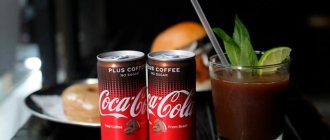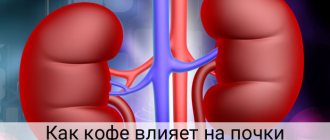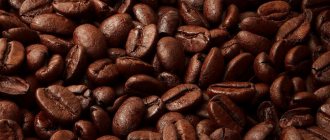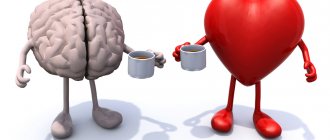Who should remove foods that contain the most caffeine from their menu?
Elderly people, especially those with hypertension, need to be careful with coffee.
Caffeine is a natural alkaloid with a mild narcotic effect. There are many studies that talk about both the benefits and harm. In fact, its properties of imparting energy and stimulating performance became known back in the 4th century BC. And green tea, which contains no less caffeine, has been drunk in China for thousands of years. These days, products containing this invigorating substance are also extremely popular. And doctors never cease to argue about the norms and contraindications of caffeine consumption.
There is no clearly defined norm of use. The human body does not need to supply this substance. Therefore, it is possible to remove this substance from the diet without the slightest harm to health. Because if in small doses a psychostimulant has a stimulating effect on the human nervous system, then in large quantities it causes exhaustion. The maximum dose is 150-200 mg per kilogram of human weight. However, consuming such an amount is extremely difficult and would require approximately 90 cups of coffee in a short period of time. This dose is lethal for humans.
Anxiety disorder caused by caffeine overdose
It is undesirable for people with high levels of anxiety to abuse caffeinated drinks. Individuals who are prone to nervousness and anxiety in normal situations may exacerbate these qualities with the help of caffeine. People suffering from insomnia often become dependent on invigorating drinks. It is better for them not to drink coffee before bed, and to reduce it during the day. People with hypertension should also control their caffeine intake, as it can quickly increase blood pressure.
People should avoid caffeine consumption:
- with gastrointestinal diseases (gastritis, ulcers, pancreatitis and others);
- those suffering from dysbacteriosis;
- in case of poisoning, bloating;
- diseases of the cardiovascular system;
- with atherosclerosis of cerebral vessels;
- with varicose veins;
- with anemia;
- for mastopathy;
- with uterine fibroids;
- with hyperthyroidism;
- with MSCH, cystitis, pyelonephritis;
- with candidiasis;
- with manifestations of allergies, psoriasis;
- with liver diseases (cirrhosis, hepatitis C, fatty liver);
- gout.
Pregnant women can drink coffee in moderation.
In addition, it is recommended to limit caffeine intake to 200 mg:
- pregnant and lactating women;
- persons planning pregnancy.
It is safe for children and adolescents to consume:
- at the age of 4 to 6 years 45 mg per day;
- from 7 to 9 years 62.5 mg per day;
- from 10 to 12 years 85 mg per day.
It is better for children to drink cocoa with milk in the morning.
Adults are not recommended to exceed a dose of 400 mg per day. People with cardiovascular disease should be careful when consuming caffeine. It has been proven to increase blood pressure for 3-4 hours. However, with regular and moderate use, this effect is not so noticeable. But it’s better to discuss acceptable doses with your doctor.
Medical experts advise against drinking instant coffee, especially if people have health problems. Natural varieties must be softened when consumed. This can be done by adding milk to the drink, choosing a variety with a reduced caffeine content, reducing the preparation time of the drink, and preferring varieties with lightly roasted beans.
Reduced caffeine coffee is delicious
What it is?
This substance is also called guaranine, theine or mateine . It is better known to chemists as 1,3,7-trimethylxanthine . It is a purine alkaloid that acts as a psychostimulant and analeptic. Among other things, it causes a dopamine surge, which improves a person’s mood . True, this effect is short-term - after the release of dopamine, fatigue and lethargy inevitably sets in. The consequences are especially noticeable if a person was tired before using matein - fatigue will come on with greater force than it was before.
Attention! Guaranine is dangerous if consumed unwisely. In small doses, it has a positive effect on the human body, but if it is constantly exceeded, it causes addiction – caffeinophagia. Read about its consequences here. And when consuming from 80 to 120 mg of caffeine per 1 kg of body weight for up to two hours, there is a danger of death - the heart simply cannot withstand such a load.
What is the caffeine content in drinks
In fact, there are many drinks that contain caffeine: coffee, black and green tea, cocoa, hot chocolate and others. However, the amount of this substance in coffee cannot be stated immediately, because it depends on the variety. The most concentrated is Robusta. Also, the quantity depends on the preparation time; coffee brewed in a Turkish coffee pot in 3 minutes will not be as strong as in a coffee machine. Let's take a closer look at these indicators:
| Drink name | Volume (ml) | Amount of caffeine (mg) |
| Cocoa | 200 | 8 |
| Energetic drinks | 200 | 64 |
| Coca Cola | 200 | 44 |
| Pepsi cola | 200 | 42 |
| Black tea | 200 | 53 |
| Green tea | 200 | 28 |
| Espresso | 200 | 266 |
| Coffee brewed in Turk | 200 | 128 |
| Instant coffee | 200 | 77 |
| Instant cappuccino | 200 | 16 |
| Mate | 200 | 44 |
| Decaffeinated coffee | 200 | 3 |
| Hot chocolate | 200 | 25 |
| Iced tea (bottle) | 200 | 29 |
| Nonalcoholic beer | 200 | 12 |
Cocoa
You should not drink cocoa before bed, at least 3 hours before.
You get about 8 mg of caffeine per cup. However, the cocoa bean powder drink contains theobromine. Its properties are almost identical to caffeine, but there are no such harmful effects. Proper preparation practically neutralizes the alkaloid in the drink, but as a result the person receives a boost of energy.
Energetic drinks
Under the influence of caffeine, adrenaline is produced, which maintains and even increases energy resources.
Caffeine is always present among the components of such drinks. Its quantity may vary, it all depends on the manufacturer. Some companies prefer to prescribe false ingredients, but you should not believe this. All energy drinks contain caffeine in amounts ranging from 64 mg per serving. At the same time, it is quickly absorbed into the blood and gives vigor. However, this puts a lot of stress on the cardiovascular system, so you shouldn’t get carried away with them.
Coca-Cola and Pepsi
There is also a decaffeinated Coca-Cola for those trying to reduce their intake of this stimulant.
Carbonated drinks with caffeine and taurine can contain up to 42-44 mg per glass. Their action is designed to stop the release of a hormone that signals the brain to rest. Plus, a large amount of sugar gives energy. But you need to understand that frequent use of such a cocktail can seriously harm your health.
Black and green tea
The study found that any flavorings or additives reduce the amount of caffeine in tea.
Varieties of tea depend on the processing of the leaves. Long fermentation produces black tea, which increases the amount of caffeine due to oxidation. It should be noted that antioxidant qualities do not depend on the type of tea. But if you need to cheer up, then it is better to choose black varieties.
Coffee
The caffeine content increases with increasing preparation time of the product.
Of course, coffee is the richest caffeine drink. It is generally accepted that coffee is more harmful than tea. But if we talk about a healthy person, then it is incorrect to compare these two drinks. They are different in action and meet different needs. Yes, and they should be used differently. Coffee in small cups, teas are more everyday drinks. One cup of freshly prepared coffee contains from 100 to 210 mg of this substance. Robusta is the richest variety; even Arabica contains several times less alkaloid. To prevent possible harm, you should give preference to grain coffee and not abuse the drink. Three cups during the day are enough to give you energy.
Mate
Reviews about the pronounced tonic properties of mate are justified: the effect of a cup of tea can be compared with the effect of quite strong coffee.
Paraguayan herbal tea has an excellent tonic effect. And also contains caffeine. In low concentration, similar to cocoa.
Hot chocolate
The higher the percentage of cocoa in it, the more caffeine.
Natural hot chocolate contains from 25 mg of caffeine per serving.
Any product containing cocoa beans contains caffeine. Even a glass of chocolate milk contains approximately 5 mg of the alkaloid.
Contraindications
- hypersensitivity;
- erosive and ulcerative lesions of the gastrointestinal tract (in the acute phase);
- gastrointestinal bleeding;
- “aspirin” asthma;
- hemophilia;
- hemorrhagic diathesis;
- hypoprothrombinemia;
- portal hypertension;
- vitamin deficiency K;
- renal failure;
- pregnancy (I and III trimesters);
- lactation period (breastfeeding);
- deficiency of glucose-6-phosphate dehydrogenase;
- severe arterial hypertension;
- severe course of ischemic heart disease;
- glaucoma;
- increased excitability;
- sleep disorders;
- surgical interventions accompanied by bleeding;
- childhood (up to 15 years - the risk of developing Reye's syndrome in children with hyperthermia due to viral diseases).
With caution: gout, liver disease.
How much caffeine is in desserts?
Caffeine is found in many desserts.
An increased amount of caffeine in the diet causes drowsiness and exhaustion of the nervous system. Plus, the effect of narcotic and sleeping pills is weakened, since the excitation of the spinal cord increases. Caffeine enhances the work of the heart, contracts the myocardium more often and more intensely, so it is especially contraindicated for hypertensive patients. It should be understood that even if a person excludes tea and coffee from the diet, this does not mean eliminating caffeine. This alkaloid is found in many foods. Wherever there is chocolate, there is also caffeine. Therefore, if there is a goal to eliminate caffeine, then it is necessary to carefully review the menu and analyze food products. Below is a table of products that contain the alkaloid and how much:
| Product name | Quantity (grams) | Caffeine content (mg) |
| bitter chocolate | 100 | 90 |
| Milk chocolate | 100 | 15 |
| Cocoa powder | 100 | 230 |
| Chocolate ice-cream | 100 | 36 |
| Coffee ice cream | 100 | 50 |
Chocolate
The more cocoa was used to make chocolate, the more caffeine it contains.
Chocolate understands mood and relieves depression precisely thanks to the action of the alkaloid. Dark chocolate contains 90 mg of caffeine per 100 grams. Due to the reduced amount of cocoa, milk contains only 15 mg for the same weight. White chocolate has no caffeine because there is no cocoa powder.
Cocoa powder
To reduce the caffeine content in cocoa, prepare the drink with milk and use a smaller portion than indicated on the package.
Per cup of the finished drink, there is about 8-12 mg of caffeine. However, in the powder itself the concentration is much higher, up to 230 mg per 100 grams of ground cocoa beans.
Ice cream
The amount of caffeine in ice cream varies depending on the serving size.
Since there is chocolate in ice cream, there is also caffeine. Per 100 grams of product there is about 36 mg of alkaloid. The same situation applies to coffee ice cream. Of course, the information is relevant, provided that the composition contains coffee and not an artificial flavor. 100 grams of product contains up to 50 mg of caffeine.
Effect of caffeine on the human body
Probably everyone knows that caffeine speeds up the heartbeat and dilates blood vessels. But not many people know that there is a complex effect on metabolism. When you drink a drink that contains caffeine, the amount of adrenaline in your body increases, and this directly affects your mental state and metabolism.
Scientists say that fifty milligrams of caffeine will improve mood and increase productivity, but two hundred or three hundred milligrams will lead to heartbeat disturbances and mild tachycardia.
Consuming four hundred to five hundred milligrams can provoke depression. If you decide to drink a liter of caffeine, death will occur.
But how do you know how much caffeine is in your cup?
How to counteract a caffeine overdose
You should not exceed your daily coffee consumption by more than three cups.
If you consume caffeine excessively, there is a risk of poisoning. The consequences of an overdose can be very serious. List of signs of overdose:
- impaired coordination;
- excessive overstimulation;
- visual and hearing impairment;
- nausea, vomiting;
- confusion, hallucinations;
- rapid pulse, which after a while can turn into a rare one;
- blueness of the skin;
- breathing problems, suffocation;
- sleep disturbance, irritability;
- headache;
- temperature increase.
If such symptoms are found, you should definitely call a doctor. Poisoning can be caused not only by food or drinks, but also by medications or dietary supplements. The symptoms of poisoning are identical.
If you have symptoms of a caffeine overdose, it is better to call a doctor.
Before the ambulance arrives, a person poisoned by caffeine must be given first aid:
- take the victim out into the fresh air, unfasten clothes, belts, ties, anything that may impede the access of oxygen;
- perform gastric lavage. If there is a gag reflex, it cannot be restrained. The body thus gets rid of toxins;
- create peace for the poisoned person.
Afterwards, the victim should be handed over to doctors, further actions should be carried out within the walls of a medical institution.
Side effect
Gastralgia, nausea, vomiting, hepatotoxicity, nephrotoxicity, erosive and ulcerative lesions of the gastrointestinal tract, allergic reactions (including Stevens-Johnson syndrome, Lyell), tachycardia, increased blood pressure, bronchospasm.
With long-term use - dizziness, headache, visual impairment, tinnitus, decreased platelet aggregation, hypocoagulation, hemorrhagic syndrome (nosebleeds, bleeding gums, purpura, etc.), kidney damage with papillary necrosis; deafness; Reye's syndrome in children (hyperpyrexia, metabolic acidosis, nervous system and mental disorders, vomiting, liver dysfunction).
How to replace coffee in the morning
Mate is a great tonic in the morning.
There is an alternative to coffee in the morning. Since doctors say that you should not drink this drink in the morning, especially on an empty stomach. You can give preference to tea. Depending on the variety, it will contain about 15-70 mg of caffeine. This way you can get the necessary boost of energy. In addition, you should not ignore cocoa, because in addition to caffeine, it contains theobromine, which invigorates and is not harmful to health. A chocolate bar during breakfast will provide up to 30 mg of caffeine. And mate contains very little alkaloid, but it tones perfectly.
If teas and chocolate do not suit you, then you can give preference to chicory. The root of this useful plant has long been a competitor to coffee beans. It grows throughout Russia, Ukraine and Belarus. Its tonic properties are similar to those of coffee. This drink achieves its stimulating properties thanks to the glycoside intibin, a natural analogue of caffeine. It looks and tastes very much like coffee, but contains a whole list of health benefits. In addition, some claim that roasted and ground date seeds are no worse than aromatic coffee.
In moderation, caffeine is even beneficial, provided there are contraindications due to health conditions. At the same time, it is necessary to avoid energy drinks and carbonated sweet drinks with additives; in addition to the harm from the alkaloid, they cause irreparable harm to the entire body. It's better to eat some chocolate or drink a cup of coffee.
When choosing coffee, it is better to give preference to grain varieties, since in addition to caffeine, they contain a lot of useful substances, unlike instant varieties. In addition, natural coffee is tastier and more aromatic. Instant coffee is rich in various flavors and dyes, which will aggravate the harm from the alkaloid. Instant coffee contains more caffeine than natural coffee.
The benefits of grain varieties outweigh the risk of harm, and the pleasure of a cup of coffee: well, you understand
Coffee connoisseurs will be interested in familiarizing themselves with recipes for making mochaccino, amaretto, mocha and raf coffee. Coffee with cola, marshmallow and fashionable frappuccino will surprise you with their unusual taste. And lovers of the classics will like espresso, Irish and Viennese coffee.
What harm does coffee cause?
Two hundred to three hundred milligrams per day is considered a safe amount of coffee for humans. According to the caffeine content table, this is approximately three cups of espresso.
As you know, caffeine addiction exists. But it appears if you consume more than three hundred to five hundred milligrams per day. A one-time intake of half a liter of caffeine has a bad effect on the human psyche.
Scientists say that large amounts of caffeine provoke paranoia and anxiety attacks. Many people know that if you drink too much coffee, insomnia becomes your best friend.
Morphological and syntactic properties
Caffeine
Noun, inanimate, masculine, 2nd declension (declension type 1a according to A. Zaliznyak’s classification).
Root: -coffee-; suffix: -in-.
| Case | units h. | pl. h. |
| Them. | caffeine | coffee shops |
| R. | coffee?on | coffee?new |
| D. | coffee? well | coffee for us |
| IN. | caffeine | coffee shops |
| TV | coffee | coffee?us |
| Etc. | coffee?not | coffee?nah |











